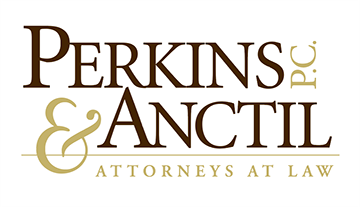Managing Partner Rob Anctil would like to alert clients and readers of this recently enacted government program to aid small business.
The CARES Act, federal legislation implemented to address the impacts of the spread of the COVID-19 pandemic, was signed into law on Friday, March 27, 2020. This relief package amounts to approximately $2 trillion dollars and provides a wide range of financial relief to not only individuals, but also to small and large businesses, hospitals, and state and municipal governments. We believe that many of our clients may be able to avail themselves of various funding sources.
Paycheck Protection Program
Perhaps the most significant aspect of the CARES Act’s small business relief programs is the Paycheck Protection Program (PPP).
PPP provides up to $349 billion for small businesses. Under PPP, any business with 500 or fewer employees is eligible to receive “forgivable loans” through the Small Business Administration program. Some larger businesses are also eligible, as are independent contractors, sole proprietorships, and self-employed individuals.
PPP is intended to help businesses maintain their payroll between now and the end of June, 2020. In addition, PPP is intended to support small businesses so they may meet other ongoing obligations (such as rent, mortgage payments, utility costs and other fixed expenses through the end of June, 2020).
The most unique and advantageous feature of the program is that PPP funds received by small businesses which are used for the near-term fixed costs or payroll as discussed above will not need to be paid back. PPP will be administered under the Small Business Administration’s Section 7(a) lending program but these loans will be forgiven, i.e., converted into grants, if spent on covered expenses during the period now and the end of June, 2020. A comprehensive summary of the PPP can be found here: https://bit.ly/39nZzY8 .
The key aspects of the PPP are as follows:
- Eligible applicants may borrow up to 250% of their average monthly payroll expenses, up to a total of $10 million. As such, if your monthly payroll was $50,000, you would be eligible for a loan in the amount of $125,000.
- The loan is forgivable 8 weeks after the funds are disbursed. The purpose of PPP is to help retain your employees at their current base pay. If the employer retains the employees, the entirety of the loan will be forgiven. If the employers release some employees, the forgiveness will be reduced by the percent decrease in the number of employees.
- The application period will be from this week up to June 30, 2020. Please note that we encourage our clients to apply as soon as possible.
- Recipient businesses can choose which 8 weeks they want to count towards the covered period, which can begin retroactively as early as February 15, 2020. According to the text of the CARES Act, for the borrowed funds to be forgiven, the period during which the funds may be expended on eligible expenses extends to 8 weeks from when the loan is originated. Accordingly, for businesses applying for a PPP loan just prior to the June 30, 2020 application deadline, for example, that expenditure period could be as late as the end of August 2020.
- The loan forgiveness for payroll and fixed expenses occurs at the end of the 8-week period after the business has taken out the loan.
- PPP funds used for other business-related expenses, like inventory, will not be forgiven.
- There will be no personal guarantees or collateral required to obtain the funds.
Who will lend PPP funds?
PPP loans will be administered by banks under the SBA’s Section 7(a) program. Many of the banks that we work with frequently are finalizing their PPP procedures. Please contact us and we will make recommendations for SBA lenders.
Summary
While we all remain concerned about the future, the CARES Act should prove to be a great tool for our clients. Please do not hesitate to contact us if you have any questions about the CARES Act and its potential legal implications, or any other COVID-19 matters that may be impacting your business.
The following are helpful links from the US Chamber of Commerce concerning the Act:
https://www.uschamber.com/co/start/strategy/cares-act-small-business-guide
